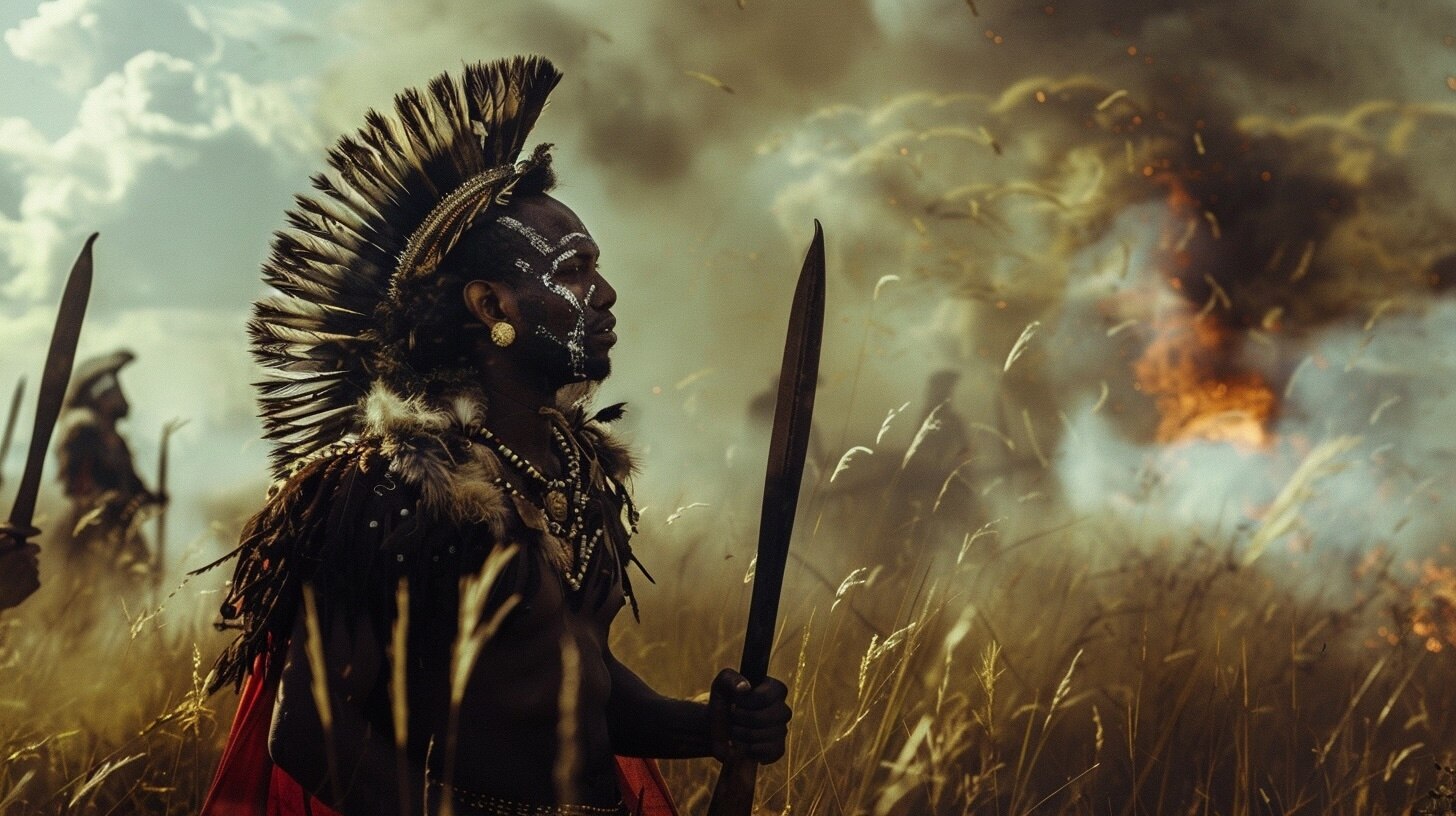
The Ndwandwe–Zulu War was a pivotal conflict in southern Africa during the early 19th century. This war, fought between the Ndwandwe and Zulu tribes, reshaped the region's political landscape. Why did these two powerful tribes clash? The struggle for dominance, control over resources, and territorial expansion fueled the conflict. The Zulu, led by the formidable Shaka Zulu, sought to consolidate power and expand their influence. On the other hand, the Ndwandwe, under King Zwide, aimed to maintain their supremacy. This war not only showcased the military prowess of both tribes but also set the stage for the rise of the Zulu Kingdom. Dive into these 25 intriguing facts to understand the significance and impact of this historic war.
Key Takeaways:
- The Ndwandwe–Zulu War was a pivotal conflict driven by competition for resources and power, reshaping Southern Africa's political and social landscape, and influencing cultural dynamics and military tactics.
- The war's impact extended beyond the battlefield, leading to enduring changes in leadership, technology, and social structures, highlighting the dynamic interplay of power, culture, and innovation in shaping historical events.
Origins of the Ndwandwe–Zulu War
The Ndwandwe–Zulu War, a significant conflict in Southern African history, shaped the region's future. Understanding its roots helps grasp its impact.
- The war began in 1817, driven by competition for resources and power between the Ndwandwe and Zulu kingdoms.
- King Shaka Zulu, the Zulu leader, sought to expand his territory and influence, leading to inevitable clashes with neighboring tribes.
- The Ndwandwe, led by King Zwide, were a formidable force, known for their military prowess and strategic acumen.
- Both kingdoms were part of the larger Nguni ethnic group, sharing cultural and linguistic ties despite their rivalry.
Key Battles and Strategies
The conflict saw several pivotal battles, each showcasing the tactical brilliance and bravery of both sides.
- The Battle of Gqokli Hill in 1818 was a turning point, where Shaka's innovative tactics outmaneuvered the Ndwandwe forces.
- Shaka introduced the "bull horn" formation, encircling and overwhelming enemy troops, a strategy that became legendary.
- The Ndwandwe employed guerrilla warfare, using their knowledge of the terrain to launch surprise attacks on Zulu forces.
- The Battle of Mhlatuze River in 1820 marked the final major confrontation, resulting in a decisive Zulu victory.
Impact on the Region
The war's aftermath reshaped the political and social landscape of Southern Africa.
- The Zulu emerged as the dominant power, consolidating smaller tribes into a centralized kingdom.
- The Ndwandwe kingdom disintegrated, with survivors fleeing to establish new communities or joining other tribes.
- The conflict led to widespread displacement, known as the Mfecane or "crushing," affecting millions across the region.
- Trade routes and alliances shifted, with the Zulu controlling key economic hubs and resources.
Cultural and Social Changes
Beyond the battlefield, the war influenced cultural and social dynamics in profound ways.
- The Zulu military system, with its regiments and strict discipline, became a model for other African armies.
- Oral traditions and songs from the period celebrated Zulu victories and heroism, preserving the war's legacy in cultural memory.
- The war accelerated the spread of Zulu customs and language, as conquered tribes adopted these to integrate into the kingdom.
- Social hierarchies shifted, with warriors gaining prominence and influence in Zulu society.
Legacy of Leadership
The leaders of the Ndwandwe–Zulu War left lasting legacies that continue to be studied and admired.
- Shaka Zulu is remembered as a brilliant strategist and nation-builder, whose reforms transformed the Zulu into a formidable power.
- King Zwide, despite his defeat, is respected for his leadership and the resilience of the Ndwandwe people.
- The war highlighted the importance of strong, visionary leadership in navigating complex political landscapes.
- Both leaders' legacies are commemorated in monuments, literature, and popular culture across Southern Africa.
Technological and Tactical Innovations
The war spurred advancements in military technology and tactics that influenced future conflicts.
- Shaka's introduction of the iklwa, a short stabbing spear, revolutionized close combat and became a symbol of Zulu warfare.
- The use of large, cowhide shields provided better protection and allowed for more aggressive fighting techniques.
- The Zulu's emphasis on rigorous training and discipline created an elite fighting force capable of executing complex maneuvers.
- The Ndwandwe's use of fortified hilltops and natural defenses showcased their strategic ingenuity and adaptability.
Enduring Historical Significance
The Ndwandwe–Zulu War remains a crucial chapter in African history, with lessons that resonate today.
- The conflict exemplifies the dynamic interplay of power, culture, and innovation in shaping historical events and their outcomes.
The Ndwandwe–Zulu War's Impact
The Ndwandwe–Zulu War wasn't just a series of battles; it reshaped southern Africa's history. Shaka Zulu's innovative tactics and leadership turned the Zulu Kingdom into a dominant force. This conflict also highlighted the importance of military strategy and unity in overcoming larger, better-equipped foes.
Understanding this war helps us appreciate the complexities of African history and the resilience of its people. The legacy of the Ndwandwe–Zulu War lives on in the cultural and historical narratives of the region. It serves as a reminder of the power of leadership, strategy, and determination.
By learning about these events, we gain a deeper respect for the rich tapestry of African history. The Ndwandwe–Zulu War is a testament to the enduring spirit of those who fought and the lasting impact they had on their world.
Frequently Asked Questions
Was this page helpful?
Our commitment to delivering trustworthy and engaging content is at the heart of what we do. Each fact on our site is contributed by real users like you, bringing a wealth of diverse insights and information. To ensure the highest standards of accuracy and reliability, our dedicated editors meticulously review each submission. This process guarantees that the facts we share are not only fascinating but also credible. Trust in our commitment to quality and authenticity as you explore and learn with us.
